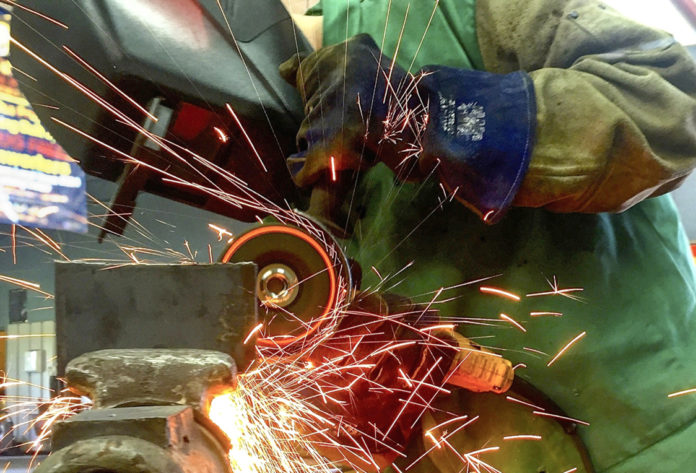
TAHLEQUAH, OK – The Cherokee Nation is investing an additional $29 million in the next three years to help Cherokee citizens negatively impacted by the COVID-19 receive vocational training in skilled trades such as health care, construction, child care, information technology and more.
Principal Chief Chuck Hoskin Jr. announced the initiative as part of the second anniversary of the Cherokee Nation Career Readiness Act, which he and Deputy Chief Bryan Warner proposed in 2019 and later signed into law with support of the Council of the Cherokee Nation.
“As Chief, this initiative is particularly important to me,” said Chief Hoskin. “To my core, I truly believe that the Cherokee people want to work, they just need a government that has their back. I believe we ought to live in a society in which people who are willing to work hard, regardless of what skill they want to develop, that their hard work ought to be rewarded. When that occurs, families prosper, and as a result our communities prosper. In 2019, we signed the Career Readiness Act to double our funding to $2 million per year to train Cherokees in a variety of skills. Last year, we were able to leverage federal COVID recovery funds to stretch that to $7 million and as a result, we saw more Cherokees finding great opportunities for education and on-the-job training. I am proud that we will now make an additional $29 million investment into the Career Readiness Act over the next three years and ensure that Cherokees who want to work do indeed have a government that has their back. And as we grow and train the workforce of this region, we will make a dramatic impact on the economy here across the Cherokee Nation Reservation in unprecedented ways.”
Under the Career Readiness Act, hundreds of Cherokee citizens have already received vocational assistance through the Cherokee Nation Career Services department over the past two years.
“For Cherokee citizens who choose to go to a college or university, the Cherokee Nation has long offered assistance through scholarships and other services,” said Deputy Chief Warner. “Higher education is a fantastic investment to support and I am proud of the work we have done in that regard. But not all Cherokees want to take that path. Some of the best-paying jobs – many of them considered jobs of the future – are in skilled trades that can only be learned through vocational training or career technology programs. That’s why this $29 million injection of federal American Rescue Plan Act funds in Northeast Oklahoma is such a major game-changer for our communities. I can’t wait to see how many hundreds more Cherokee citizens and families we can help with these new federal dollars over the next three years.”
Participants who qualify for the new vocational training opportunity funded by the American Rescue Plan Act must be Cherokee Nation citizens living in the Cherokee Nation Reservation or a contiguous county whose boundary touches the Cherokee Nation Reservation border.
“Opening this opportunity to counties that border the Cherokee Nation Reservation means we will be able to help a number of at-large Cherokee citizens who live in bordering counties in Northwest Arkansas, Southwest Missouri, and Southeast Kansas,” said Chief Hoskin. “This means our investment will reach even farther and provide a boost to many more Cherokee families over the next three years.”
The $29 million boost to the Career Readiness Act will specifically assist Cherokee citizens who have been negatively impacted by the COVID-19 pandemic through loss of a job or through under-employment. Training programs include a wide array of sectors such as construction trades, information technology, HVAC, health care, graphic design, hospitality, facilities maintenance, medical billing and coding, welding, commercial driver’s license, electrical, culture and tourism, security and more.
The tribe may also connect participants to Cherokee Nation Career Services tribal training programs such as business technology, building trades, surgery technology, tribal nursing program or child care certification trainings.
“We will make every effort to support Cherokees pursuing any type of career training that leads to a good paying job,” said Chief Hoskin.














































